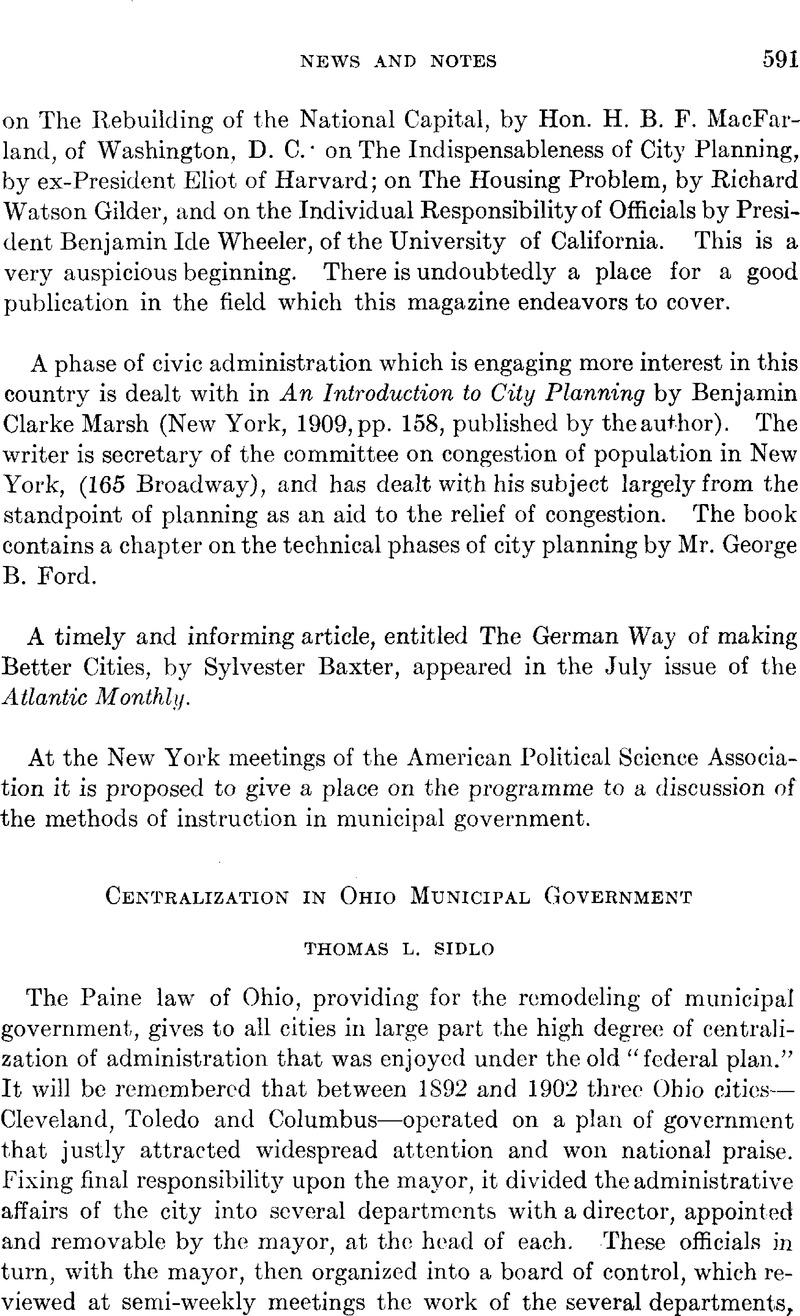No CrossRef data available.
Published online by Cambridge University Press: 02 September 2013

1 The “federal plan” had come as a special concession on the part of the legislature to the three cities mentioned.
2 With the confirmation of the council.
3 Under the code the board of public service in Cleveland was separated into three divisions: public works, parks and charities and correction. The full powers of the department under the new plan (sections 140 and 141) are as follows:
Sec. 140. The director of public service shall supervise the improvement and repair of streets, avenues, alleys, lands, lanes, squares, wharves, docks, landings market houses, bridges, viaducts, aqueducts, sidewalks, playgrounds, sewers, drains, ditches, culverts, ship channels, streams and water courses; the lighting, sprinkling and cleaning of all public places, the construction of public improvements and public works, except as provided in section 147 hereof, or as otherwise provided in this act.
Sec. 141. The directors of public service shall have the management of all municipal water, lighting and heating plants, parks, baths, market house, cemeteries, crematories, sewage disposal plants and farms, as well as all public buildings and other property of the corporation. ‥ ‥ Said directors of public service shall also manage and control all houses of refuge and correction, workhouses, city farm schools, infirmaries, hospitals, pest houses and all other charitable and reformatory institutions.…‥
4 Sec. 147. The director of public safety shall be the chief administrative authority of the fire, police, charity, correction and building departments and shall have all powers and duties connected with and incident to the appointment, regulation and government of these departments, except as otherwise provided by law….
He shall manage and make all contracts in reference to the police stations, fire houses, cemeteries, and reform schools, houses of correction, infirmaries, hospitals workhouses, farms, pest houses, and all other charitable and reformatory institutions now or hereafter established and maintained.
5 Under the code.
6 See section 158.
7 See section 159.
8 See section 160. The plan of permitting the appointing official to select one from a certain number of the highest candidates—three, five or seven—combines the requirements of fair play with the advantage on the city's part of choosing the best all-around man, whether he be the highest on the list or not. In practice this scheme has been found to combine the maximum of justice and efficiency and to obviate disadvantages from which even the civil service system is not free.
9 Sec. 164. ‥ ‥ The council shall provide for the salaries, if any of the commission, for such clerical force, examiners, necessary expenses and accomodations as may be necessary for the work of the commission.
10 A wholesome safeguard is provided in the requirement (section 154-b) that the city auditor shall be present at the opening of bids filed for the letting of contracts by the directors of public service and safety. An elective officer, he is made jointly responsible for any dishonest award by the board of control. Observance and enforcement of this provision will minimize the possibility of the favoritism which notoriously prevailed during the second administration of Mayor McKisson.
Comments
No Comments have been published for this article.